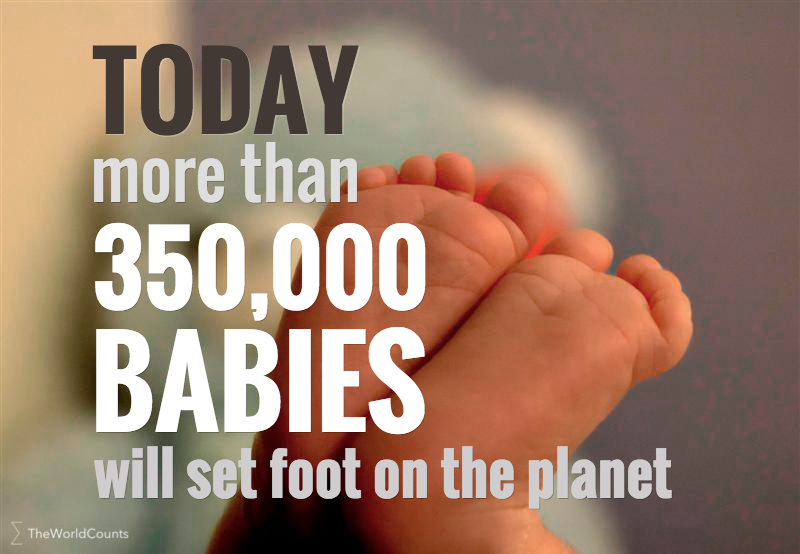How Many Babies Are Born Each Day?
How Many Babies Are Born Each Day?
Around 385,000 babies are born daily

Be Fruitful and Multiply!
That is exactly what we’ve been doing for the past century.
It is difficult to come to the exact number of births every day since not all births are registered or recorded.
The UN estimates that around 385,000 babies are born each day around the world (140 million a year). This number will remain relatively stable in the 50 years from 2020 to 2070. From 2070 to 2100, the number will decline to around 356,000 (130 million a year).
The crude birth rate is 18.2 births per 1,000 population or 267 births globally per minute or 4.5 births every second (2018 estimate).
The current world population is growing by about 215,000 people every day. It is projected to hit 8 billion by 2023, 9 billion by 2037, and 10 billion by 2057.
Advances in medicine and the industrial revolution were the catalysts to the population boom. There are fewer deaths now and babies have bigger chances of living their full lives and having children of their own. We have access to clean water and this lowered the incidence of life threating diseases like Malaria.
While it’s good to know that life goes on, it is a fact that we have developed a way of living that has become unsustainable. We are extracting our planet’s resources to the point where it cannot reproduce fast enough to catch up. The demands of our growing population has done much damage to our environment.
We call it progress, but somehow, our civilization does not have the maturity yet to do what’s right for this planet that we call home. But we are beginning to be more aware and take positive actions. We are taking baby steps towards the right direction.
What affects global birth rates?
The following are some of the factors that determines a particular region’s birth rate:
- Government policies dictating the number of children a family can have
- Availability of family planning services
- View on abortion and contraceptives
- Mortality rate of infants
- Socio-economic capability
- Illiteracy
- Poverty. In some areas, having more children means more manual labor.
- Opportunities for women
- Cultural differences
















